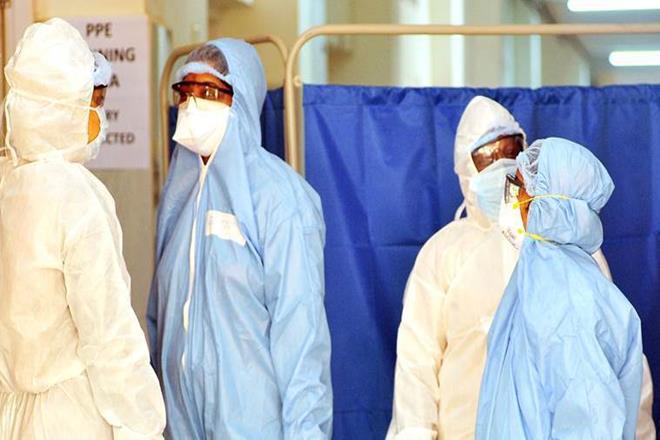The Bulletin of Atomic Scientists (BAS) represents the view of several senior scientists regarding the existential threats faced by life of on our increasingly endangered planet. In particular its annual statement is eagerly awaited by many concerned people in world to get an assessment of the latest position on life-threatening issues. Generally its annual statement focuses on two key issues-nuclear weapons and climate change. However recently the statement has including a third factor—the increasing threat of information warfare.
The latest ( 2020 ) BAS statement says, “ In recent years, national leaders have increasingly dismissed information with which they do not agree as fake news, promulgating their own untruths, exaggerations, and misrepresentations in response. Unfortunately, this trend accelerated in 2019. Leaders claimed their lies to be truth, calling into question the integrity of, and creating public distrust in, national institutions that have historically provided societal stability and cohesion.”
“Continued corruption of the information ecosphere on which democracy and public decision making depend has heightened the nuclear and climate threats. In the last year, many governments used cyber-enabled disinformation campaigns to sow distrust in institutions and among nations, undermining domestic and international efforts to foster peace and protect the planet.”
In the more specific context of the USA, this statement says that there is active politial antagonism toward science and a growing sense of government-sanctioned disdain for expert opinion, creating fear and doubt regarding well-established science about climate change and other urgent challenges.
Pointing out how the situation has changed with technology, the BAS statement says, “ Countries have long attempted to employ propaganda in service of their political agendas. Now, however, the internet provides widespread, inexpensive access to worldwide audiences, facilitating the broadcast of false and manipulative messages to large populations and enabling millions of individuals to indulge in their prejudices, biases, and ideological differences.”
“The recent emergence of so-called “deepfakes”—audio and video recordings that are essentially undetectable as false—threatens to further undermine the ability of citizens and decision makers to separate truth from fiction. The resulting falsehoods hold the potential to create economic, social, and military chaos, increasing the possibility of misunderstandings or provocations that could lead to war, and fomenting public confusion that leads to inaction on serious issues facing the planet. Agreement on facts is essential to democracy and effective collective action.”This statement warns that threats to the information ecosphere, when coupled with the emergence of new destabilizing technologies in artificial intelligence, space, hypersonics, and biology—portend a dangerous and multifaceted global instability.In the previous year ( 2019) the BAS statement had stated “In the extraordinarily dangerous state of affairs, nuclear war and climate change pose severe threats to humanity, yet go largely unaddressed…Meanwhile, the use of cyber-enabled information warfare by countries, leaders, and sub-national groups of many stripes around the world exacerbates these enormous threats and endangers the information ecosystem that underpins democracy and civilization as we know it. At the same time, other disruptive technologies complicate and further darken the world security situation.”
Pointing out the urgency of corrective action the BAS statement of 2020 states, “The international community should begin multilateral discussions aimed at establishing norms of behavior, both domestic and international, that discourage and penalize the misuse of science. Science provides the world’s searchlight in times of fog and confusion. Furthermore, focused attention is needed to prevent information technology from undermining public trust in political institutions, in the media, and in the existence of objective reality itself. Cyber-enabled information warfare is a threat to the common good. Deception campaigns—and leaders intent on blurring the line between fact and politically motivated fantasy—are a profound threat to effective democracies, reducing their ability to address nuclear weapons, climate change, and other existential dangers.”













